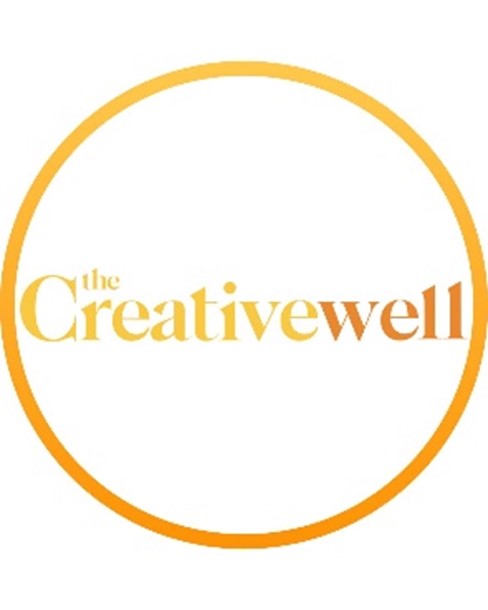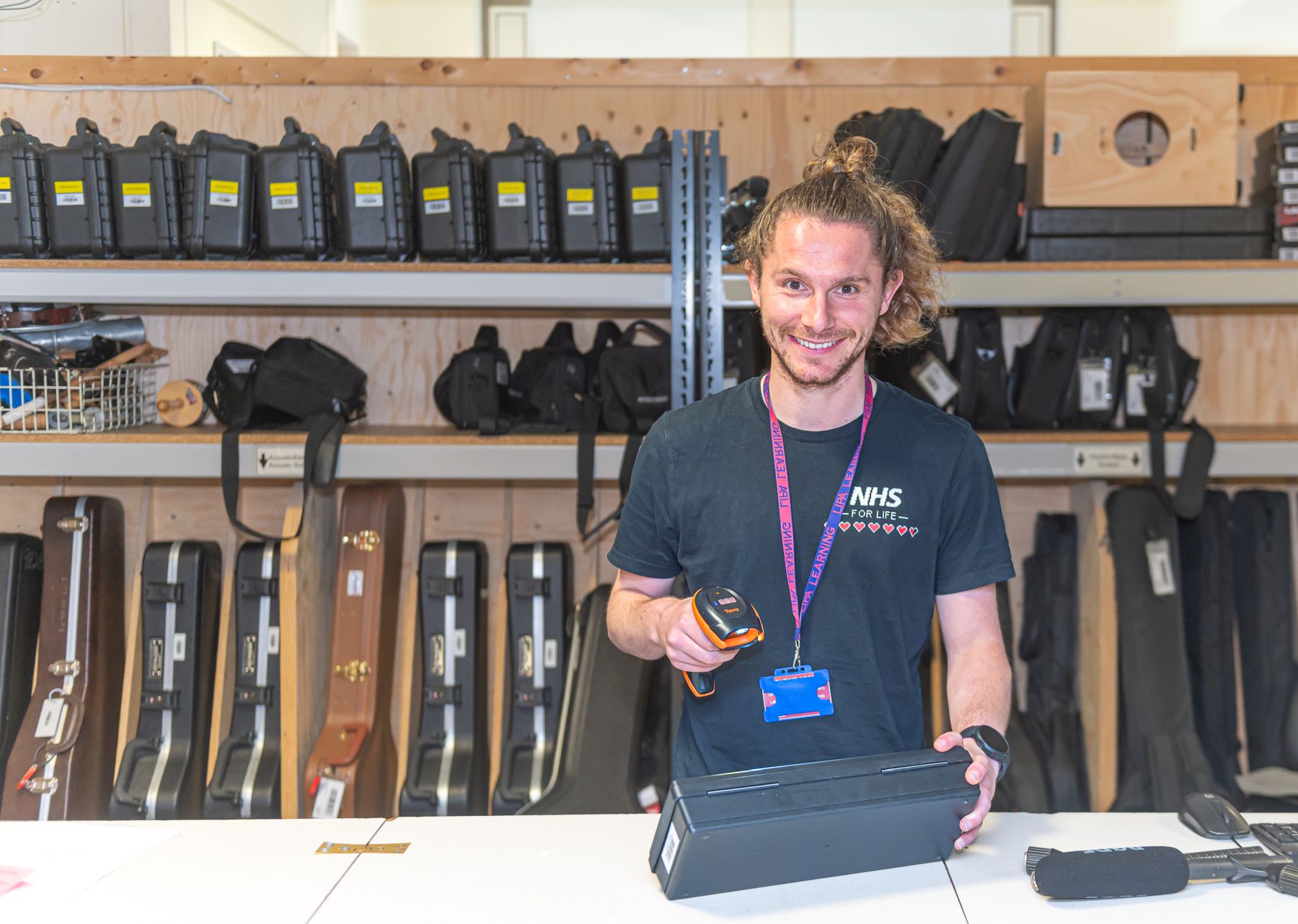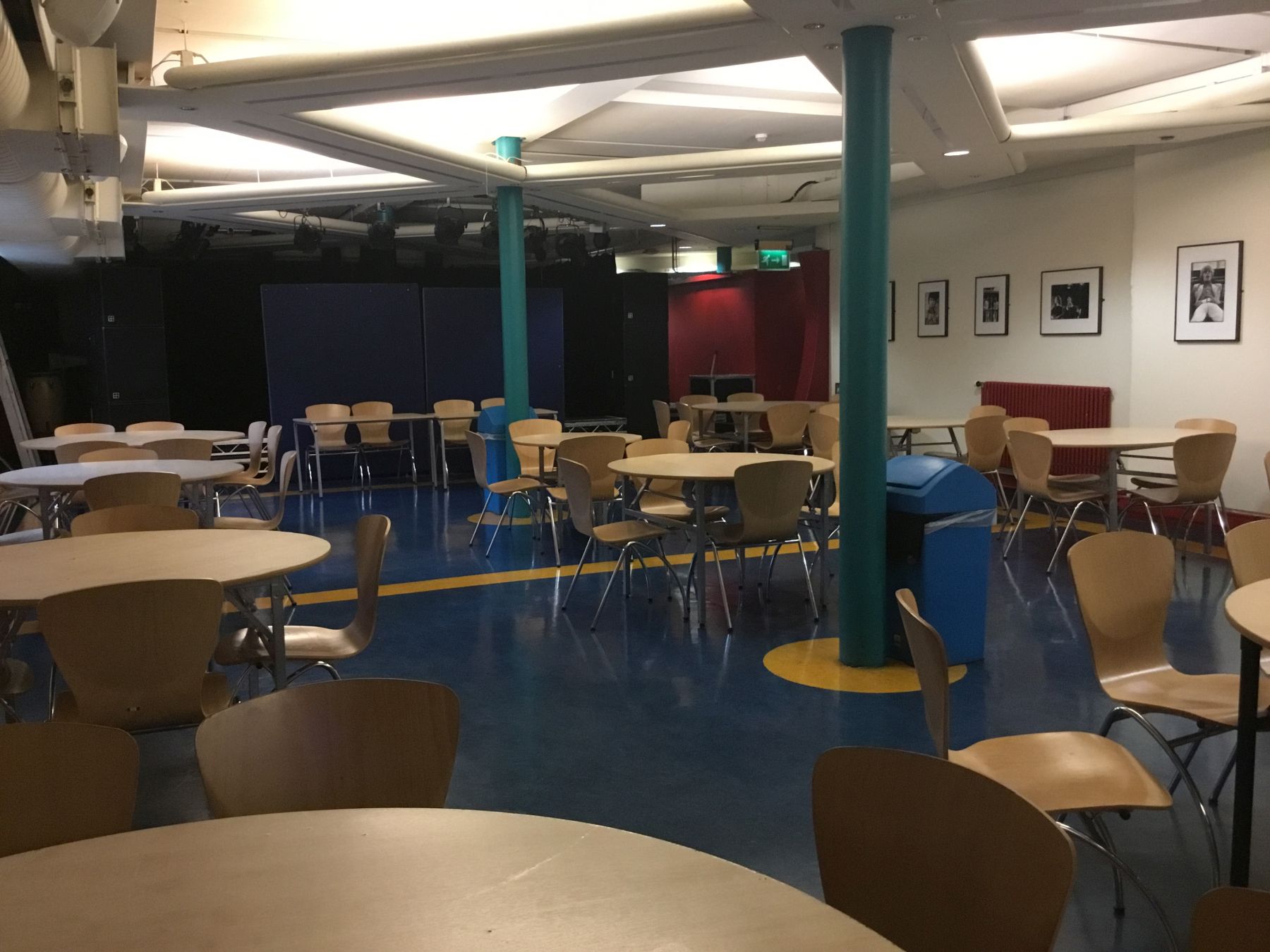
Course Overview
Our course enables you to enhance and develop your management skills, so you can navigate the music industry better and capitalise on career opportunities in the music and creative industries. It provides a comprehensive and complementary educational and practical experience, combining postgraduate research with the most up to date management practice.
Throughout the course you explore the fundamentals underpinning successful management practice. This includes management theory, artist and product development, entrepreneurship, organisational structures and behaviours, new music business models, music streaming metrics and data insights that inform business decision making.
The curriculum promotes and supports real-world industry engagement and research through career-led practical project work that contributes to your ongoing professional development and personal career planning.


Course Highlights
- Real-world industry engagement via personal, distinct practical project work that is career led and tailored to your own goals.
- Combination of understanding sound management principles and gaining practical academic research skills in contemporary music management.
- Collaboration with industry professional mentors working on your own project.
- Practice led MA taught by practice led researcher practitioners.
Connect With Us
What You Will
Study
Term 1 Academic Skills
This module introduces the principal theories and methodologies underpinning the processes of ‘practice as research’, self-reflection, and reflective analysis. You will analyse your own professional work and discover how to use that work as research to develop your professional journey. You self-reflect in a critically rigorous manner and apply the conclusions to career planning and development. You become familiar with appropriate research methodologies and understand the importance and procedures of ethical conduct of research projects in preparation for designing your own research projects and MA dissertation.
Term 2 Research Project
Through this module you develop your academic writing and research skills. These are essential to enable you to evaluate and critically analyse complex elements of a research project, through either a practice-based research dissertation or a research-based dissertation. You learn how to propose and defend a research project and to critically evaluate complex and current debates concerning working methods within the music industry. You gain insights into how to devise a sophisticated research methodology, gather and critically analyse data and evidence so you can present informed, sophisticated, objective arguments regarding the various dynamics underpinning your chosen sector of the Music Industry. In addition, you will be able to use academic theories and industry-based methods to analyse and evaluate approaches to achieving high quality, innovative, productive, and creative applied work within the music industry.
Term 1 The Music Industry
This module gives you a wide-ranging critical overview of the music industry, studying music business organisation, the industry’s evolving infrastructure and how entrepreneurs grow new music business models. You take a deep dive into record labels, publishing, artist management companies, live music, and events companies. You examine the importance of intellectual property, copyright management, music agreements, income streams and music catalogue exploitation including the role played by new digital technologies.
Term 2 Music Management
In this module, you examine the history and development of management techniques as well as the latest and emergent approaches in the context of a changing and dynamic industry. Combined with a deeper study of strategies for effective management, you evaluate the latest industry practices and ideas, while developing research skills through independent research into your chosen area of the music business. You develop a comprehensive understanding of artist management, the skills and traits required to manage bands and small medium music enterprises, while developing a knowledge of strategic marketing techniques and research music manager career profiles. As part of this module, you produce a bi-weekly podcast Music Business Insider, interviewing music managers working in various areas of the music industry, providing invaluable insights into their career journeys and practice.
Music Management Project Term 1 - Feasibility and Planning
The module enables you to research and demonstrate the viability of your practical ideas, through detailed study of proposals, strategies, concepts, resources, and budgets. The study is designed to inform your practical work in term 2, confirming a coherent methodology that is applicable to your proposals and area of research. You develop critical thinking and problem-solving skills while establishing the scope of your project including key performance indicators designed to guide progression and practical work.
Term 2 - Process and Execution
The project promotes real-world industry engagement and research through distinct practical project work that is career led, contributing to your ongoing professional development and personal career planning. The work is informed by the findings of the feasibility study conducted in term one, putting into practice the skills and knowledge learned on the course, demonstrating familiarity with music industry management practices, operating as a manager collaborating with a team of professionals in a creative environment. The practical work is supported through experienced industry mentors and managers. The module prepares you for your Practical Project Based Dissertation and future career.
Music Management Project is one module that runs over two terms.
Term 3 Dissertation
The course culminates in a major investigative research project which can either be a Dissertation or a Practical Project Dissertation.
The Dissertation is designed to build on the lessons and insights of your professional activities experienced throughout the course. The module considers critical and innovative ideas, relevant theoretical perspectives to the music and wider creative industries and developments in global economies and public policy. At the same time, you critically explore how these and other similar considerations relate to the subject area. You undertake career analysis and determine key questions that inform your research themes and personal understanding of your work and career development.
This module/unit content is indicative.
Term 3 Practical Project Dissertation
The course culminates in a major investigative research project which can either be a Dissertation or a Practical Project Dissertation.
The Practical Project Dissertation provides you with an opportunity to make a distinctive contribution to the industry and enhance your professional profile. The module allows you to propose, devise and deliver a significant professionally focused project which robustly addresses your career priorities, identified through careful self-reflection and critical analysis. Your project work is individually directed and managed, with supervisions and mentoring support. You consider critical ideas, music industry developments and how those concepts relate to your own career development and the wider music and creative industries. The Practical Project Dissertation allows you to refine your research skills, develop practice as research methodologies. At the same time, you develop a range of relevant transferable skills operating at a professional level. The project prepares you to function as a highly skilled manager ready to work in the music industries.
How You Will
Study
-
Lectures
-
Seminars
-
Workshops
-
Class presentations and discussions
-
Independent study
-
Mentoring
-
Supervisions
-
Guest Lecturers
-
Masterclass
How You Will Be
Assessed
The course employs a number of relevant assessment strategies: essays, reports, feasibility studies, evaluative presentations, portfolios, symposium, plus the option of a practice-led dissertation or written dissertation You are introduced to the principles of documentation and evidence recording in the performing arts so that any insights gained from the embodiment of ideas in practice can be supported or illustrated by data. The course culminates in student led practice based, or research dissertation which require the asking of contemporary key questions.
Practical/written work ratio
50% practical work / 50% reflective work
Alternative formats for written/ reflective work include, evaluative presentations, portfolios, videos blogs, journals.

Keith Mullin
Head of Department: Management; Music Department: Subject Leader Professional Practice & Music Business
MA, PGDip, FHEA Course Leader
Keith is a member of Liverpool band The Farm and works as a freelance music professional. The band’s first album reached number one in the UK and they continue to perform at festivals and UK venues. He has also managed bands and artists, and co-owned independent labels Honey Records, Produce Records and recently Vile Entertainment. Keith was also a member of The Justice Collective achieving the 2012 Christmas number one with their recording of He Ain’t Heavy, He’s, My Brother, working with Guy Chambers, Sir Paul McCartney, Mick Jones from The Clash, Robbie Williams and former Spice Girl Mel C.
With over 30 years’ experience in the music industry, he has acquired a knowledge and experience of the industry’s management structures and common business practice which he passes on to his students. He uses a mixture of approaches and methods to ensure that learning feeds into career-focused development for musicians and artists.
With an MA in Music Industry Studies, and PGCert in higher education teaching, he has mentored and taught numerous musicians who have gone on to enjoy successful careers in the music industry as songwriters, managers, A&R managers, live music industry media and digital marketing professionals. He continues to maintain relationships with many professional entertainment companies, publishers, record labels, agents, managers, promoters. In addition, he has performed with numerous experienced artists such as, Mick Jones (The Clash), Paul Heaton, Suggs, David Bryn, Susan Vega, Fun Lovin Criminals, Happy Mondays, Take That, Eurasia, Clean Bandit, Madness, The Stone Roses, Beverly Knight, Lightening Seeds, BA Robinson, New Order, Peter Hook & The Light and many other high-profile artists. More recently he worked alongside Rob Sloman as associate producer, composer and music director for the documentary Howard’s Way, the documentary currently features on sky documentaries.
Keith teaches a broad range of subjects across the disciplines of music and management, music industry and business, professional practice, research skills, practical project, work, live music and events, performance techniques and coaching. Keith’s industry knowledge and experience permit a relevant contribution to teaching and learning across multiple disciplines.
Keith possesses an extensive portfolio of professional experience having worked in the music and creative industries for 32 years. Working as a successful artist/entrepreneur since 1989 to the present day, has assisted in acquiring a comprehensive knowledge of music industry conventions and contemporary business practices. Enabling the application of music industry insights and practices within educational settings. Professional experience in Keith’s view is “an integral part of preparing students for a profession, through linking theoretical studies to deliberate practice and their learning”
Publications
What is a good higher education teacher? "Am I what I say I am?" Published 2017-04-18 LJMU Innovations In Practice
Hillsborough Justice Tour 2012 - The John Robb Diary, Book, Chapter Contribution
Music releases
Albums
Spartacus (1991)
Love Sees No Colour (1992)
Hullabaloo (1994)
Pastures Old and New (1986)
Spartacus Live (1991)
Groovy Times (1991)
Best of The Farm (1998)
The Very Best of The Farm (2001) [compilation] Back Together Now! Live (2006) All Together with The Farm (2007) [live album] Singles.
Keith’s songs have featured on 90-compilation albums
Singles
Hearts and Minds (1984)
Steps of Emotion (1985)
Some People (1986)
Body and Soul (1989)
Stepping Stone / Family of Man, Groovy Train, All Together Now (1990)
Sinful! (Scary Jiggin' with Doctor Love) with Pete Wylie, Don't Let Me Down, Mind (1991)
Love See No Colour, Rising Sun, Don't You Want Me, Love See No Colour (re-mix) (1992)
Messiah, Comfort (1994)
All Together Now (Everton FA Cup Final version) (1995)
All Together Now 2004 (feat. SFX Boys Choir) (1994)

Dr Veronica Skrimsjö
Lecturer
Veronica has a BA (Hons.) and MA in popular music studies, and a PhD that focused on popular music, aesthetics, and record collecting. She has been teaching at HE-level since 2009 and is a fellow of the HEA.
Veronica’s research is primarily concerned with record collecting and collecting cultures, materiality and aesthetics. One of her main aims is to highlight how diverse and active popular music fandom and consumption is, and she has a clear focus on the listener and reader-response theories. In 2016 she published the book ‘I, Me, Mine?’: An Initial Consideration of (Popular Music Record) Collecting Aesthetics, Identities & Practices, and more recently published the book The Vinyl Revival, Gender, and Collecting Aesthetics.
Veronica is the co-chair and a founding member of the Society for Music Production Research (SMPR), and the Journal of Music Production (Intellect Books), and sits on the editorial board for The British Pop Archive book series (Manchester University Press). She regularly provides research commentary for various media, including radio, television, and print, and she is the sole owner of the Cunard Yanks record collection.
Selected publications/research
‘I, Me, Mine?’: An Initial Consideration of (Popular Music Record) Collecting Aesthetics, Identities & Practices (2016)
The Vinyl Revival, Gender, and Collecting Aesthetics (2025)
A selection of shorter works is available via www.veronicasvinyl.com

Dr Dori Howard
Lecturer
Dori is a popular music researcher and writer. She is one of fewer than 100 people in the world to hold an MA in the Beatles, Popular Music and Society, and she has a PhD in Popular Music. Her key research interests are the Beatles and Liverpool, genre studies, and popular music ethnography. More recently, her research focuses on gender and embodiment in popular music.
Dori is a public speaker on the Beatles and other popular music topics and has been consulted in online, print, and television media considerations of popular music, including BBC World News. She is a member of the International Association of Popular Music (IASPM UK and USA).

Bob James
Lecturer
Bob has over 30 years of music industry experience including working in publishing, record labels, management, digital and other areas of exploitation of intellectual copyright. During this time, he has built up a strong network of contacts in Los Angeles, New York, Nashville, Germany and Asia as well as the UK.
Bob was founder and former CEO of Music House, which was the UK’s largest and most successful independent music promotions company. It worked with most of the UK and Europe’s largest labels and artists on club, radio, TV and international promotions.
He left Music House in 2002 to set up Asylum, managing the careers of various song writing and production teams including DEEKAY Music in Copenhagen and has through strategic co-writing and artist development built relationships with most of the major songwriters and producers worldwide. His writing and production credits have been responsible for over 60 million records sold.
Artist management included a selection of platinum selling acts, including Misteeq, and he has developed acts that have involved Randy Jackson (American Idol) and Mick Fleetwood (Fleetwood Mac).
Bob was instrumental in the negotiation of the first ever digital deal with Universal Records and has done ground-breaking deals for his artists involving major brands, including Motorola.
Still an active manager, Bob’s roster of artists includes Kelvin Jones (gold and platinum selling artist in Germany) and Hannah Trigwell. He has been a consultant to Arista Records (BMG) and EMI Records and been part of a production team with projects signed to Warners, MCA and Telstar Records.
Bob now runs Get Money from Music, where he mentors and coaches' songwriters, producers, recording artists and music industry entrepreneurs. He regularly sits on industry panels and lectures on the music industry and new business models across the UK and Europe.
Bob currently works on the MPP modules and mentors' performance, songwriting and production students at LIPA. He provides feedback, support and guidance as he uses his experience to guide students on the best way to navigate the music industry.
Through his years of experience Bob has learnt that artists need support not only in business but also with their mindset and creativity. Before entering the creative industries, you need to learn how to understand and deal with the pressures you will be under, be your authentic self and have the right knowledge to help you navigate your way to success. Bob’s role with students is to help them create possibility.
What Our
Graduates Do
Whether you wish to run your own business or work within a music company, the industry knowledge, business understanding and practical skills that you gain from completing this course will provide you with a solid foundation for advancing your music management career. Graduates from this course will be well equipped to succeed in such areas as artist management, music publishing, music recording, tour management, catalogue exploitation, digital marketing and the live music industry.
Ever wondered what our MA Music Industry Management is all about?
MA Music Industry Management Course Leader Keith Mullin and lecturer Eva Petersen explain the teaching behind the title. You will find out what the course entails, whether it suits your professional ambitions and what kind of student benefits from the course. Take a look.
Related
News

LIPA welcomes first Chevening Scholar to our MA in Music Industry Management

Reaching for the Star, Holding the Pearl: Students develop original Dance show for Edinburgh Festival Fringe

Management Placement Q&A

First-year Management student scouts talent for leading songwriting duo

Management Student Della becomes first Cypriot to win prestigious award

Winter/Spring season of public performances

LIPA Companion Sita McIntosh named in Stage 100

Management graduate Liam McMullan joins The Stage 100

Gallery: Term one productions 2025/26

A busy and creative Christmas for LIPA grads

LIPA secures £2.5m Office for Students capital funding to deliver new performance and digital innovation hub

Bruce Springsteen Q&A: ‘Always bet on yourself’

LIPA and Sefton Council join forces to bring fresh creative energy to Salt and Tar

LIPA named a Billboard Top Music Business School for a fifth consecutive time

Masterclass helps Management students understand the power of metadata

Autumn/Winter Season of public performances

LIPA graduate elected as president of Oscars organisation

LIPA achieves major milestone: new degree awarding powers

Gallery: Graduation 2025

Sir Paul McCartney honours leading arts figures at LIPA graduation

LIPA grads and students head to Edinburgh Fringe

LIPA’s festival of new music to showcase 60 artists

Watch: TikTok A&R and Management grad Josh Mateer returns for Q&A

Practice-led research: ‘Theory and practice are mutually intertwined not mutually exclusive’

LIPA grads get creative for Christmas

Gallery: LIPA Christmas Concert

Jamie Webster and Alfie Skelly take a deep dive into the artist-manager relationship

LIPA part of £7m boost for Liverpool’s music scene

LIPA named as a top music business school 2024 by Billboard

Management student’s Liverpool Everyman production

‘Films have a way of finding you out’ - Sir Sam Mendes at LIPA

LIPA shortlisted for environmental award

LIPA grads and students at Edinburgh Fringe

Gallery: Graduation 2024

Profile: Elliot Callard - marketing executive, Rambert

Award-winning LIPA grad honoured by Sir Paul McCartney

WATCH: 2ube Xtra - LIPA’s student run music festival

LIPA supports Africa Oyé

Gallery: LIPA students take part in Queen Anne naming ceremony

Twelve day music festival showcases LIPA students
Educational qualifications are important but limited in what they can tell us about you.
Your natural ability, your fit with what and how we teach, your growth and your potential are also key factors in our admission process. We can’t evaluate these solely on your educational achievements, so no matter which course you are applying for, we look for the following attributes on your application and at the interview stage.
Additional Costs
As part of this course, there are likely to be some additional costs that are not included within your tuition fees. Many of these are optional.
Books and equipment
All of the key texts for the course can be found in our Learning Resources Centre (LRC). You will also have access to university libraries around the country through the Society of College, National and University Libraries (SCONUL). There are, however, a couple of books that it may be useful to have a look at in preparation for starting the course. It is not compulsory to buy these but they will provide a good overview of some of the current issues in the field. We'll send you recommendations for these before you enrol.
The LRC has these however, if you wanted to own your own copy key texts are:
Bolton, G. (2018), Reflective practice: writing and professional development, London, SAGE Publications Ltd.
Music business careers: career duality in the creative industries
Carr, Cheryl Slay
Managing organizations in the creative economy: organizational behaviour for the cultural sector
Saintilan, Paul
Reflective practice: writing and professional development
Bolton, Gillie
The Music industry handbook
Rutter, Paul
Practice as research in the arts: principles, protocols, pedagogies, resistances
Nelson, Robin
Todorovic, M., (2016), Rethinking strategy for creative industries: innovation and interaction. Abingdon: Routledge.
Vear, C., (2022), The Routledge international handbook of practice-based research, Routledge
Varbanova, L., (2013), Strategic management in the arts. New York, Routledge
Harrison, A., (2017), Music the business: the essential guide to the law and the deals. London: Virgin Publishing.
DIY music and the politics of social media
Jones, Ellis
Project management for musicians: recordings, concerts, tours, studios, and more
Feist, Jonathan
Creative conspiracy: the rules of breakthrough collaboration
Thompson, Leigh
Practical project costs
We advise you to reserve £400 for practical project-related costs, this is a rough guide as it will be very dependent on what you choose to research.
Subscriptions
We recommend you become a member of recognised industry associations and forums. These are not compulsory; however, we believe they will benefit your professional development and industry knowledge. The costs for each in March 2022 are:
Unsigned Guide: £32.99 per annum (If accepted on the course UG have offered 12-month free subscription)
Featured Artist Coalition: Community membership is free, Pro membership is £50 per annum
Music Managers Forum For under 30s Membership Fee is £60 per annum or £6 per month (inc VAT). Full Membership Fee is £120 per annum or £12 per month (Inc VAT)
We subscribe to Music Week and our students have full access, however personal subscriptions are £152.15 per annum
Engaging with industry and events
Engaging with the music industry provides you with excellent networking opportunities which will aid your development as a music manager. Music events such as concerts are not covered by your tuition fees, so you will need to cover these costs yourself. Most local venues in Liverpool offer a student discount. We also have good contacts locally and nationally within the live music industry, that occasionally offer limited numbers of free or discounted tickets for shows in the city. We advise that you budget £200 for general local events.
We have excellent professional relationships with larger industry events, such as Sound City, Africa Oyé and Liverpool International Music Festival (LIMF). These events offer a limited number of discounted and free tickets, in addition to work-based opportunities to our students.
Additional Costs
As part of this course, there are likely to be some additional costs that are not included within your tuition fees. Many of these are optional.
Books and equipment
All of the key texts for the course can be found in our Learning Resources Centre (LRC). You will also have access to university libraries around the country through the Society of College, National and University Libraries (SCONUL). There are, however, a couple of books that it may be useful to have a look at in preparation for starting the course. It is not compulsory to buy these but they will provide a good overview of some of the current issues in the field. We'll send you recommendations for these before you enrol.
The LRC has these however, if you wanted to own your own copy key texts are:
Bolton, G. (2018), Reflective practice: writing and professional development, London, SAGE Publications Ltd.
Music business careers: career duality in the creative industries
Carr, Cheryl Slay
Managing organizations in the creative economy: organizational behaviour for the cultural sector
Saintilan, Paul
Reflective practice: writing and professional development
Bolton, Gillie
The Music industry handbook
Rutter, Paul
Practice as research in the arts: principles, protocols, pedagogies, resistances
Nelson, Robin
Todorovic, M., (2016), Rethinking strategy for creative industries: innovation and interaction. Abingdon: Routledge.
Vear, C., (2022), The Routledge international handbook of practice-based research, Routledge
Varbanova, L., (2013), Strategic management in the arts. New York, Routledge
Harrison, A., (2017), Music the business: the essential guide to the law and the deals. London: Virgin Publishing.
DIY music and the politics of social media
Jones, Ellis
Project management for musicians: recordings, concerts, tours, studios, and more
Feist, Jonathan
Creative conspiracy: the rules of breakthrough collaboration
Thompson, Leigh
Practical project costs
We advise you to reserve £400 for practical project-related costs, this is a rough guide as it will be very dependent on what you choose to research.
Subscriptions
We recommend you become a member of recognised industry associations and forums. These are not compulsory; however, we believe they will benefit your professional development and industry knowledge. The costs for each in March 2022 are:
Unsigned Guide: £32.99 per annum (If accepted on the course UG have offered 12-month free subscription)
Featured Artist Coalition: Community membership is free, Pro membership is £50 per annum
Music Managers Forum For under 30s Membership Fee is £60 per annum or £6 per month (inc VAT). Full Membership Fee is £120 per annum or £12 per month (Inc VAT)
We subscribe to Music Week and our students have full access, however personal subscriptions are £152.15 per annum
Engaging with industry and events
Engaging with the music industry provides you with excellent networking opportunities which will aid your development as a music manager. Music events such as concerts are not covered by your tuition fees, so you will need to cover these costs yourself. Most local venues in Liverpool offer a student discount. We also have good contacts locally and nationally within the live music industry, that occasionally offer limited numbers of free or discounted tickets for shows in the city. We advise that you budget £200 for general local events.
We have excellent professional relationships with larger industry events, such as Sound City, Africa Oyé and Liverpool International Music Festival (LIMF). These events offer a limited number of discounted and free tickets, in addition to work-based opportunities to our students.
View the programme specification on LIPA's course catalogue






























